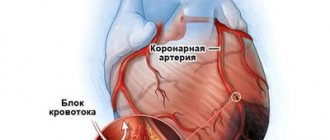Examination by a gastroenterologist
A gastroenterologist studies and treats the digestive organs: esophagus, stomach, intestines, pancreas and liver. Most often, patients turn to a gastroenterologist when they begin to be very bothered by discomfort and pain, and the asymptomatic course of the disorder has already been missed. Therefore, when a patient visits a doctor, he must tell him about his lifestyle and eating behavior, about all the factors that influenced the development of the disease. Issues of heredity, bad habits or drug abuse all matter. After the interview, the doctor examines the patient using the palpation method, palpating the abdominal cavity to determine the location of the disease. A gastroenterologist usually prescribes an ultrasound examination of the digestive organs and other types of laboratory diagnostics: general and biochemical blood tests, examination of stool, gastric juice, bile, pancreatic secretions, and stomach contents. To obtain this important data, probe and probe-free methods are used; before performing the manipulations, special preparation is required, about which the doctor will inform the patient.
How to prepare for an appointment with a gastroenterologist
Consultation with a gastroenterologist does not require special preparation. However, if the patient is prescribed an endoscopic examination of the gastrointestinal tract (colonoscopy, irrigoscopy, etc.), a special diet may be required that reduces the intensity of gas formation in the intestines, taking a laxative or a cleansing enema. Your attending physician will provide detailed recommendations on preparing for the study.
The price of seeing a gastroenterologist in Moscow depends on the status of the medical institution and the level of qualification of the specialist.
Indications for examination by a gastroenterologist
The patient will be referred for consultation to an ENT specialist by other specialists if the patient is bothered by the following symptoms:
- pain and discomfort in the abdomen;
- heartburn and belching;
- nausea and vomiting;
- a sour, bitter or metallic taste in the mouth;
- bloating, accumulation of gases, flatulence, rumbling in the stomach;
- decreased or excessive increase in appetite;
- bowel disorders: constipation, diarrhea, irregular bowel movements;
- heaviness and pain during or after eating;
- stools that are too dark or too light;
- the presence of blood in the stool;
- deficiency or excess body weight;
- skin rashes, acne, itching, allergic reactions to food;
- brittle nails, hair, dry skin;
- weakness and drowsiness after eating.
Symptoms of gastrointestinal disorders are very diverse and can manifest themselves in completely unexpected places, in all systems of the body. Everything a person eats affects the entire body. It is important not to miss the signs of the disease.
How is an appointment with a gastroenterologist?
During the visit, the doctor collects anamnesis, conducts an examination and prescribes treatment. To clarify the diagnosis, a specialist may recommend undergoing various types of studies at the clinic:
Ultrasound. A safe diagnostic method that shows in detail the anatomical features of the organs of the digestive system and pathological changes in them (inflammatory processes, impaired peristalsis, neoplasms).
X-ray. The study reveals damage to the mucous membranes, hernias, intestinal obstruction, foreign objects, and abnormalities in the development of the gastrointestinal tract.
EGDS. An endoscopic procedure that allows you to examine the condition of the mucous membranes from the inside and detect the localization of ulcers, inflamed areas, polyps and other neoplasms.
Colonoscopy. A minimally invasive method for taking samples of the mucous membrane of the colon and rectum and removing small defects.
Methods for diagnosing diseases of the gastrointestinal tract
The specialist may also prescribe a number of tests, which you can take in our laboratory:
- UAC and OAM;
- blood test for antibodies to Helicobacter pylori (a potential causative agent of gastritis);
- liver tests;
- pancreatic enzyme analysis;
- sowing stool for flora (testing for dysbacteriosis);
- tests for tumor markers and bacterial infections;
- fecal analysis for helminth eggs.
During repeated visits, the doctor monitors the dynamics of the patient’s condition and, if necessary, adjusts the treatment regimen.
Diseases treated by a gastroenterologist
- peptic ulcer of the stomach and duodenum;
- ulcerative colitis;
- inflammatory diseases of different parts of the gastrointestinal tract: cholecystitis, gastritis, pancreatitis, hepatitis, esophagitis, appendicitis, duodenitis, paraproctitis, Crohn's disease, etc.
- obstruction of the esophagus or intestines;
- abscesses in various organs of the gastrointestinal tract;
- cirrhosis of the liver;
- narrowing of the intestines and esophagus (stenosis);
- hernias and organ prolapses;
- familial diffuse polyposis;
- bacterial overgrowth syndrome.
Specializations in gastroenterology Hepatology –
Diagnoses and treats diseases of the liver and biliary tract.
Proctology
– examines and treats diseases of the rectum.
Coloproctology specializes in diseases of all parts of the large intestine.
Gastroenterologist
The gastroenterologists of the Rassvet clinic are universal, they are proficient in all areas within this specialty and beyond - they are also therapists.
Appointment with a gastroenterologist A doctor of this specialization is consulted for pain and discomfort in the abdomen or stomach area, abdominal pain and bloating, nausea and vomiting, diarrhea or constipation.
We treat: Diseases
- gastroesophageal reflux disease
- functional dyspepsia
- gastritis
- peptic ulcer of the stomach and duodenum
- celiac disease (gluten enteropathy)
- irritable bowel syndrome
- ulcerative colitis
- Crohn's disease
- laryngopharyngeal reflux
- microscopic colitis
- chronic pancreatitis
- hepatitis, liver cirrhosis (for these diseases we have a hepatologist)
- gastroenterologist provides prevention of esophageal cancer, stomach cancer and colon and rectal cancer in risk groups
- Helicobacter-associated diseases
Symptoms
- abdominal and stomach pain
- nausea and vomiting, heartburn and belching
- bloating and gurgling in the abdomen, unstable stools
- constipation
- changes in blood tests, such as increased activity of liver enzymes (AST, ALT, GGT, ALP, amylase, bilirubin)
- atypical manifestations of gastroenterological diseases: sore throat, pharyngitis, hoarseness, chronic cough, iron deficiency, B12 deficiency, joint and skin damage
- admixture of blood, mucus and pus in the stool
The doctor’s task is to recognize all atypical manifestations of diseases of the digestive system. If you find yourself with similar symptoms, it’s time to make an appointment with a specialist.
To examine and treat diseases of the digestive system at the Rassvet Clinic, you will have to go through the following steps:
Consultation with a gastroenterologist
The appointment time for gastroenterols at the Rassvet clinic in Moscow ranges from 40 minutes to 1 hour . The doctor will talk to you, find out the details of your illness and its course. Therefore, already at the stage of communication, our doctor will be able to assess whether the disease is functional or organic, taking into account the age, lifestyle, medical history of the patient’s relatives, and plan the most effective examination.
Diagnosis of gastroenterological diseases
Examination is still a necessary part of the diagnostic process. Palpation, listening to sounds in the abdomen, percussion (by tapping) determination of the size of the liver and the presence of free fluid in the abdomen are ancient, but absolutely necessary methods in the arsenal of a modern doctor.
However, gastroenterologists at the Moscow Rassvet clinic have the opportunity to use advanced diagnostic techniques without leaving their workplace. Laboratory diagnostics allow them to evaluate liver function, detect inflammation of the pancreas and conduct complex immunological tests for celiac disease, primary biliary cirrhosis, autoimmune hepatitis, and detect minimal inflammatory changes or bleeding from the intestines.
Ultrasound diagnostics using high-end Esaote (Italy) and GE (USA) devices allows you to see the liver, gallbladder and bile ducts, pancreas, spleen and intra-abdominal lymph nodes.
The modern endoscopic center of the Rassvet clinic is equipped with advanced technology from the Japanese company Pentax, designed for high-definition video colonoscopy and video gastroduodenoscopy (gastroscopy), using multiple magnification, a narrow-spectrum light source and virtual chromoscopy. There is a particularly thin device designed for children.
An X-ray machine with a digital fluoroscopy function allows Dawn gastroenterologists to examine the function of the stomach and esophagus in case of reflux disease, achalasiacardia, and cardiospasm.
CT scans and MRIs are performed by partners we trust, and our radiologists read these studies and are able to provide a “second opinion” in difficult cases.
Our gastroenterologists use only diagnostic tests and drugs with proven effectiveness.
For example, to diagnose Helicobacter infection, we use the C13 urease breath test and stool antigen analysis using the chromatographic method. These methods are recommended by international guidelines.
We will never offer you the fast urease Helpil test for gastroscopy, which is unfortunately dominant in our country, or the “breathing Helic test”, only imitating similar tests with a good evidence base used abroad.
Not to mention the analysis for “dysbacteriosis” - in our clinic, as in any clinic in developed countries, it is not performed or evaluated due to its complete lack of information. At the same time, if you develop diarrhea after taking antibiotics, we test for clostridial toxins in the stool and can really help using modern methods of treating antibiotic-associated diarrhea.
Treatment by a gastroenterologist
Why is treatment by a gastroenterologist Rassvet so effective that patients suffering from diseases for decades achieve improvements and remissions? Because we strictly follow international protocols, such as the Rome 4 criteria or the Maastricht consensus 5, which allow proper diagnosis and treatment, identifying organic diseases and separating functional ones from them.
Organic diseases - ulcers, polyps, cholelithiasis, tumors - require prompt identification and adoption of therapeutic or surgical measures. But the majority of those untreated and exhausted by a long-term illness are patients with functional, somatoform disorders, irritable bowel syndrome and functional dyspepsia.
Dawn's gastroenterologists know how to help such patients, if necessary, prescribing not only classic gastroenterological drugs, but also antipsychotics, antidepressants, and involving a psychologist in treatment.
What will you get from a gastroenterologist at the Rassvet Clinic?
Within the walls of the clinic there is a Center for Gastroenterology and Endoscopy under the leadership of the director of the Rassvet clinic, Ph.D. Alexey Paramonov.
Our values are patient focus and evidence-based medicine. We do what we must according to international protocols, we explain our actions to the patient, and involve him in making decisions regarding his own health. We have achieved the unity of specialists of different profiles in one team, which includes gastroenterologists, hepatologists, endoscopists, ultrasound doctors, radiologists, surgeons - therefore we are able to solve a diagnostic problem of any complexity, provide effective treatment and build a treatment route if continued treatment outside the walls of the clinic is required.
Defecation disorder
- Constipation
. If you defecate less than three times a week, this may be a manifestation of not only pathologies of the intestine itself, but also problems with neurological, endocrine or microbial imbalance. Constipation can also be caused by poor diet and low fiber and water intake. A gastroenterologist will determine what is causing your constipation. - Diarrhea (diarrhea)
. This is frequent bowel movements with watery, loose stools three or more times a day. Many people experience this disorder several times a year or more. Diarrhea can be acute or chronic. Acute diarrhea often lasts one or two days, while chronic diarrhea can last several months.
Measures to prevent diseases of the digestive system
It is possible to prevent the development or exacerbation of an existing disease by following the recommendations:
- Compliance with diet. It is advisable not to skip meals. You should eat small portions, dividing them into 4-5 meals.
- Healthy eating. You should avoid fried, fatty, smoked, fast food, and carbonated drinks; limit salt and sugar intake.
- Avoiding stress. Often, excessive emotionality can cause the development of GERD, irritable bowel syndrome.
- Quitting alcohol and smoking.
- Weight control. Excess body weight aggravates gastrointestinal problems. Sudden weight loss can also negatively affect your health.
- Taking medications. In case of chronic gastroenterological diseases, it is necessary to carefully follow the previously given recommendations of the attending physician.
- Sufficient physical activity. It is calculated based on the following indicators: gender, age, concomitant chronic pathology. A sedentary lifestyle worsens the course of many gastrointestinal pathologies.










